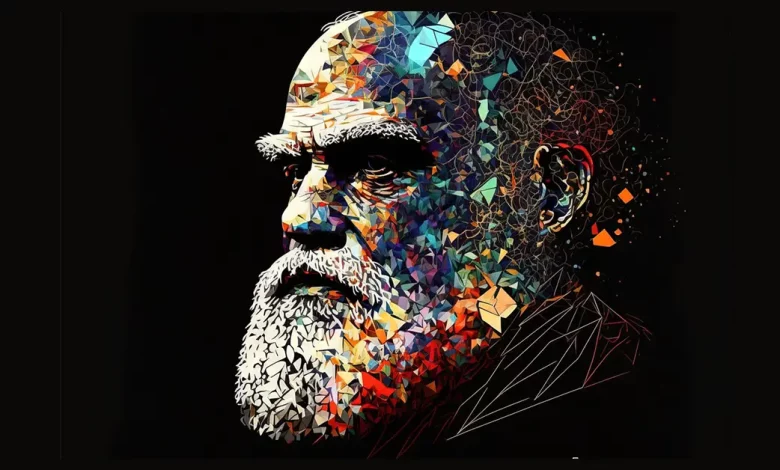
Context- February 12 is worldwide celebrated as Darwin Day to mark the birthday of naturalist Charles Darwin (12 February 1809 – 19 April 1882).
About
- Darwin Day is an opportunity for scientists to showcase the latest advancements in the comprehension of evolution and sell public knowledge of science.
- Charles Darwin turned into a British naturalist and biologist whose paintings laid the inspiration for the current principle of evolution.
- He is first-class acknowledged for his groundbreaking book “On the Origin of Species,” published in 1859, which supplied proof for the concept of natural selection as the mechanism driving evolution.
- He is considered as the Father of Evolution.
His Work
- About Evolution:
-
-
- Charles Darwin’s principle of evolution by natural selection, first mentioned in his 1859 book “On the Origin of Species”, is one of the fundamental tenets of modern biology.
- Gradual Changes: Evolution refers to the gradual changes that take place in populations of organisms over generations leading to new species emerging over time.
- Genetic Variations: It occurs as of genetic variations that increase randomly in a population.
- Adaptation and Survival: Individuals with variations that assist adaptation and survival in their environments are able to reproduce and pass those useful traits to the following technology.
- Emergence of New Species: Over many generations, those adaptations gather ensuing within the emergence of recent species.
-
- Mechanism of Genetic Variation:
-
-
- DNA Copying Process: Genetic variations occur due to slight inaccuracies in the DNA copying method all through replica.
- Replication Errors: While DNA replication may be very correct, errors can occur at roughly 1 in every million letters.
- Genetic Mutations: These DNA copying errors appear as new genetic mutations and account for all genetic diversity seen throughout species.
-
- About Natural Selection and Adaptation:
-
-
- Fitter Traits: When a population faces environmental modifications, those with fitter trends applicable to the new habitat survive better and reproduce more.
- Natural Selection: This ends in a multiplied share of fitter genetic trends in subsequent generations, the system of natural selection.
- Examples of Adaptation: Heat resistance allows adaptation for temperature upward thrust. Resistance to illnesses aids survival towards new pathogens.
-
- Evolution is Universal:
-
-
- Unity of Biochemistry: Fundamental aspects like DNA structure, gene expression, and inheritance are the same across the tree of existence from microbes to humans.
- Similar Operations: Evolution operates in addition to all organisms. This cohesion of biochemistry helped unify biology as a discipline.
- Model Species Insights: Experiments on version species like fruit flies or mice yield insights relevant to human health too.
-
- About Human Evolution:
-
-
- Extinct Ancestors: Humans advanced from now extinct ancestor species which also gave rise to the tremendous apes like chimpanzees.
- Emergence of Homo Sapiens: Multiple human species like Homo erectus and Neanderthals emerged however best Homo sapiens survived subsequently.
- Out of Africa: Modern humans originated in Africa approximately 300,000 years again earlier than migrating worldwide.
- Genetic Inbreeding: Genetic proof indicates interbreeding between Neanderthals and migrating modern humans round 40,000 years lower back.
-
- Need to Understand Evolution:
-
- Biodiversity Conservation: Habitat loss and overexploitation reduces genetic variety of untamed species dangerously. It limits future evolutionary adaptability in the face of climate change and environmental change.
- Medicine and Healthcare: Evolution plays a key role in emerging illnesses. Pathogens and pests evolve resistance to capsules and pesticides. Tracking evolutionary adjustments in viruses helps expect new variants and broaden updated vaccines periodically.
- Social Equality: All humans are related by common ancestry and there’s no evidence a few companies are biologically superior. Genetic diversity is crucial for our species’ resilience as opposed to any indicator of inequality. Understanding this counters thoughts of racism, casteism, and other types of discrimination.
Source: Indian Express





.png)



